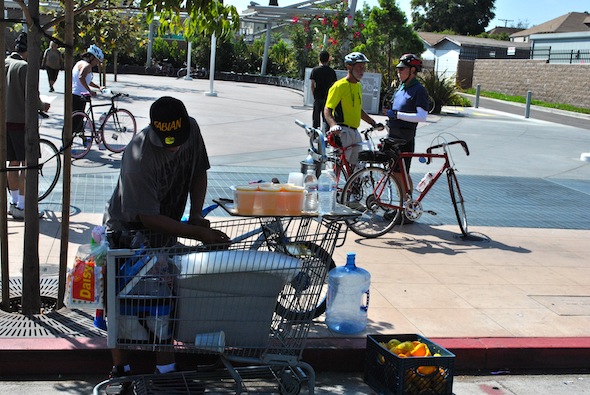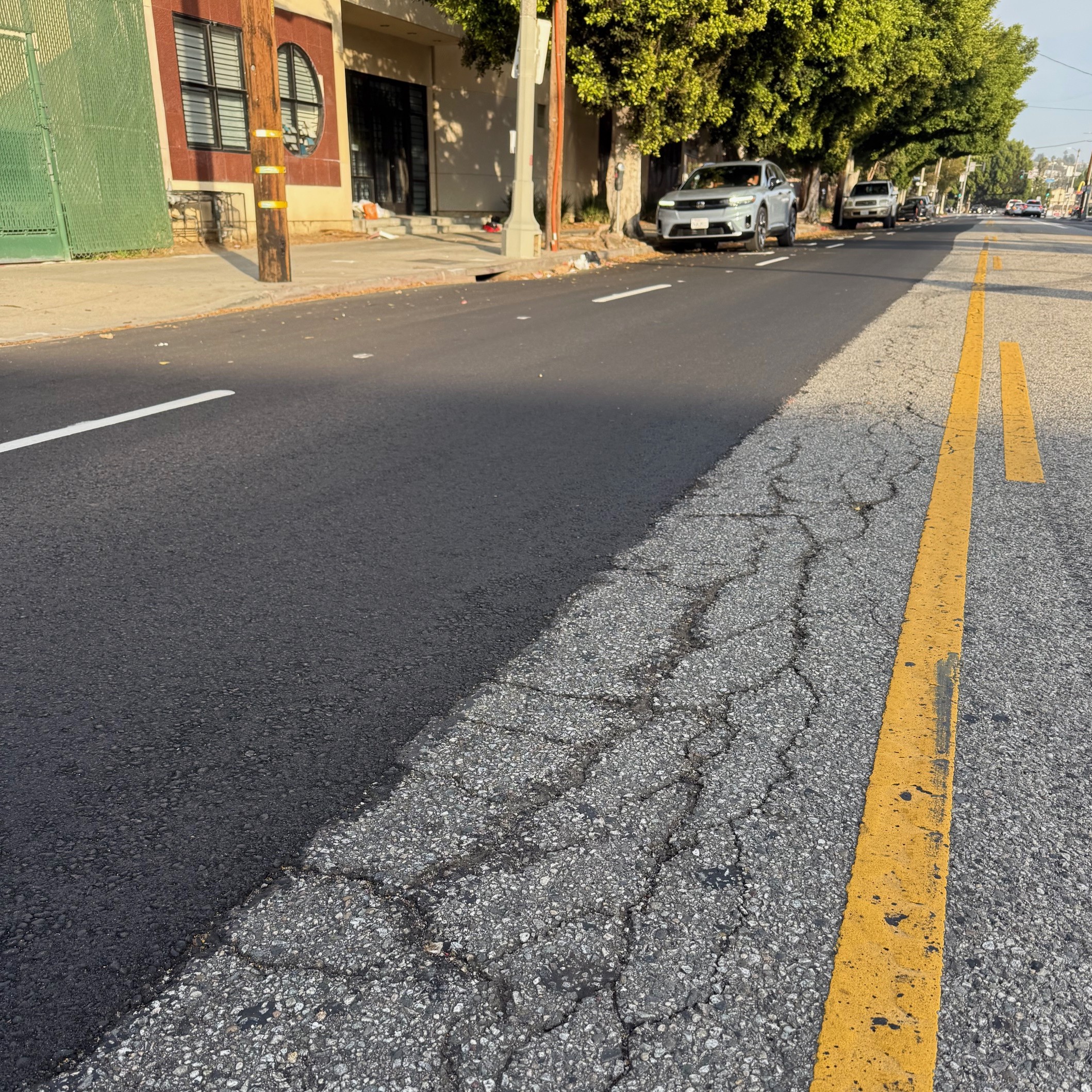Martha Garcia legs wouldn't stop shaking when she saw the tamales and gelatins she made the night before being thrown in the trash by police officers, and her equipment being taken away by the city.
The tension stayed with her for a month, but she knew she had to recover from this setback.
"We're always day by day. But it's like too bad, we have to keep risking it."
Last week's Policy con Pan Dulce brought together city officials, activists, scholars and street vendors to discuss the hurdles that stand in front of legalizing street vending. It also gave people a chance to see the human face of those affected by the ordinance, which criminalizes street vending.
The event was organized by East Los Angeles Community Corporation (ELACC), which also hosted four street vending town halls in Boyle Heights, Westlake/MacArthur Park, South Los Angeles, and Pacoima. ELACC has been working with street vendors and various community organizations to craft a street vendor ordinance.
"We didn't just arrive at this focus of the code overnight," said Maria Cabildo, president of East Los Angeles Community Corporation. "It's been a multi-year journey. But we feel like this is the solution that our community needs, and something that warrants all of us to think together and make this happen."
Scholars estimate there are more than 10,000 street vendors in Los Angeles, many of which are undocumented. Of those, many street vendors chose to enter street vending's informal economy because they've been pushed out of formal means, mostly because of their undocumented status.
Street vending also trickles down to the children of vendors. Children of street vendors help prepare the merchandise at home, babysit their siblings while their parents are away, or help sell goods with their parents or separately, said Emir Estrada, adjunct professor of sociology at University of Southern California.
Any ordinance that is considered should be able to reflect how street vending functions today, said Janet Favela, a community organizer for ELACC. During ELACC's town halls last year, overregulation on location choice and how the activity currently is done could have negative effects on street vendors and on clientele.
While there has been growing support for a street vending ordinance, city departments need to be on board. Some of the hurdles include convincing city departments like LAPD, Bureau of Street Services, Department of Community development, and the Chief Administrative Officer, said Greg Kettles, Deputy Council to Mayor Villaraigosa.
Even current alternative options like creating a legal vending district seem a dead end, since it became to rigid and too expensive for street vendors to operate. "The laws that exist right now is not working," Kettles said.






